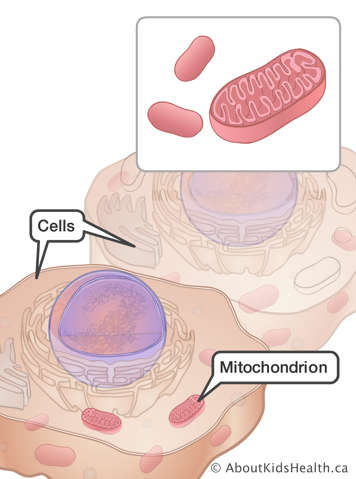What is HIV?
HIV stands for Human Immunodeficiency Virus. HIV is a virus that infects certain white blood cells of the immune system. It makes the immune system weaker over time. This puts a person at risk of other serious infections.
A woman who is infected with HIV (HIV-positive) can unknowingly pass the infection onto her baby during pregnancy, at birth or through breastfeeding. Some women do not know they have HIV until they are pregnant and get tested.
Taking HIV medicine during pregnancy lowers the risk of passing the virus to your baby
If a pregnant woman has HIV and does not receive medicine during pregnancy or delivery, the risk of infection for the baby is around 25%. This means one in four babies will be infected.
The risk that your baby will be infected with HIV is much lower if:
- You take HIV medicines regularly as prescribed.
- Your health care team knows about your condition so they can deliver proper care during childbirth.
- After being born, your baby takes medicines for six weeks.
- You formula feed your baby and do not breastfeed.
In this case, the risk of infection to your baby is less than 1%. This means that fewer than one in 100 babies will be infected.
For more information, please read HIV and Pregnancy.
Your baby will be tested for HIV
The doctor cannot tell if your baby has HIV just by looking at them. Most of the time, babies with HIV look the same as babies who do not have HIV. If a baby becomes sick with other infections, this could be related to HIV. It could also be an infection that the baby would have had anyway.
Tests for HIV
Your baby's doctor needs to test your baby's blood soon after birth and two more times, usually when your baby is one month old and two months old. The test looks for HIV in your baby's blood. It takes about one month to get the test results back. If the tests do not find any virus, it means your baby is not infected with HIV.
For more information, please read our page HIV and AIDS.
Formula feed your baby instead of breastfeeding
In Canada and other developed countries, formula is the safest form of nutrition for your baby if you have HIV. HIV can be passed onto your baby, through breastfeeding, even if your viral load is undetectable. Discuss with your health-care team your feelings about breastfeeding and any concerns you have about not breastfeeding.
In Ontario, the Teresa Group provides free formula for the first year of life to babies born to HIV-positive mothers. Find out more by calling the Teresa Group (416-596-7703) or visiting their website www.teresagroup.ca.
If you live outside Ontario, ask your health-care provider about programs that provide free formula.
Your baby will need to take AZT
Your baby will be given a medicine called zidovudine (AZT) within the first 24 hours after birth. You will need to give your baby this medicine twice a day for the first six weeks of life. This will lower the risk that your baby will be infected with HIV. A nurse or another health-care professional will show you how to give the medicine. In Canada, it is provided free by the Ministry of Health.
A nurse or another health care professional will show you how to give the medicine.

Your baby may have side effects from the medicines
Even if the HIV test is negative, the doctor will follow your baby to see if the medications cause any short-term or long-term problems. The medicines given to pregnant mothers are very safe. A few short-term side effects can sometimes happen.
- The AZT may cause anemia in your baby after birth. Anemia means your baby does not have enough red blood cells, the cells that carry oxygen to the rest of the body.
- AZT may also damage mitochondria and cause the baby to have problems with the blood or liver. Mitochondria are found in all the cells in your body. They help make energy in the cell.
Any anemia or mitochondrial damage usually goes away once you are finished giving AZT to your baby.
So far, there have been no reported problems with taking these medicines. They do not lead to any major long-term effects. Children exposed to these medications are normal.
Your health-care team will assess your child's development on a regular basis. If there are any concerns, they will make suggestions or will refer your child to other programs.

If your baby's HIV test is positive
In Canada, children with HIV can live healthy, normal lives if they go to clinic regularly for health care and take medicines as prescribed. If your baby is diagnosed early, the doctor can start medicines right away, if needed, to keep your baby healthy.
For more information, please read HIV and Your Child.
HIV and pregnancy resources
If you have any questions or concerns, contact your child's doctor or the HIV clinic.
For more information, please see the following:
- Motherisk www.motherisk.org
- Teresa Group www.teresagroup.ca 416-596-7703
